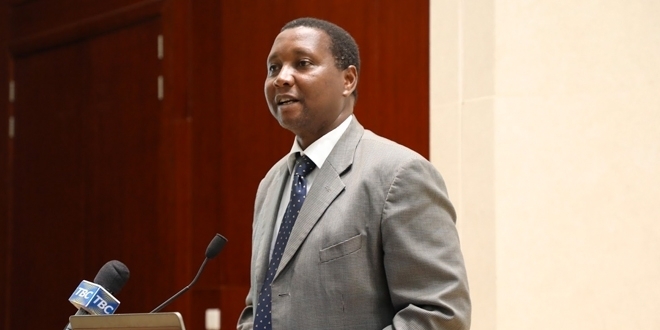Agriculture minister Prof Adolf Mkenda made the announcement on Tuesday afternoon at the Tanzania Agricultural Research Institute (TARI) Mikocheni centre in Dar es Salaam, saying the decision has been made to conserve genetic resources of the country and local seed varieties.
This implies that the drought-tolerant GMO maize trial that has been ongoing at the Makutupora Research Centre in Dodoma and another for cassava at TARI Mikocheni halt operations forthwith. The maize project sought to tackle a periodic infestation of fall armyworm while the cassava trial was meant to end diseases such as the brown streak virus.
The minister raised concerns over the negative impact of GMOs on farmers, saying that if the nation lets free entrance of foreign seeds, “there will be seed market dominance by a few agricultural companies with local farmers forced to buy from them every year hence creating seed dependence.”
He, therefore, directed that from today all imported seeds must undergo effective screening at molecular biology laboratory at TARI-Mikocheni, a lab that is mandated to carry out tests before such seeds enter the market, as it has a molecular biology lab, a diseases diagnostic lab and a tissue culture lab.
“As of now, this is the government position. We shall conduct other types of agriculture research activities to improve our seeds and increase yield and productivity through conventional methods but not GMO research,” he elaborated.
Underlining the government’s acute positioning on the issue, he pointedly tasked the media to spread the word, “as it is listening. We have big task to protect our seed sovereignty and so far we are doing well. If there are some imported seeds in the market that have not undergone testing, make sure that | get the report,” he directed the TARI leadership.
After assessing the centre’s capability, he said the process must start quickly to equip the centre with modern infrastructures and needed reagents so that it can efficiently conduct the screening exercise for good results.
“Today | have two samples of imported cotton and sunflower on my table. | want them to be tested to see whether they are GMO or not but the centre has no capacity to do this. We can’t go on this way. Make sure you improve the performance of the centre by building capacity,” the minister intoned.
He also stressed the need for TARI-Mikocheni to network with similar testing institutions and labs in the testing and screening exercise on samples of imported seeds.
“| also direct you to go around and assess the capacity of molecular biology laboratories in other institutions and see if they have the capacity to test imported seeds,’ he pursued, noting that transformation of
Agriculture will be brought about by science, technology, and innovation..read more on








